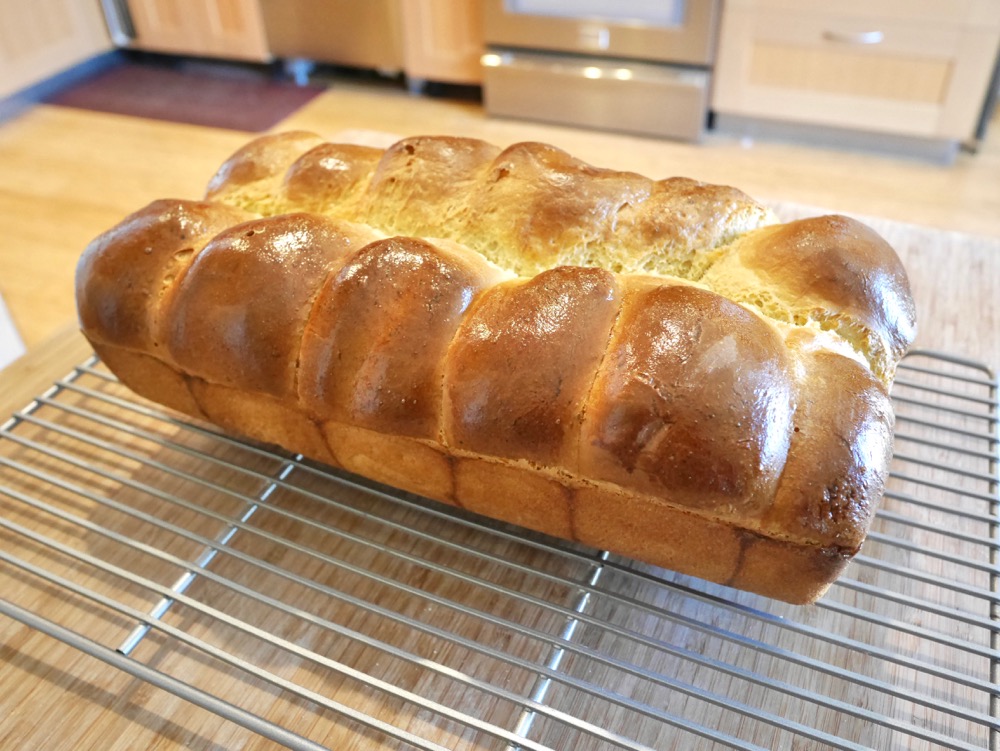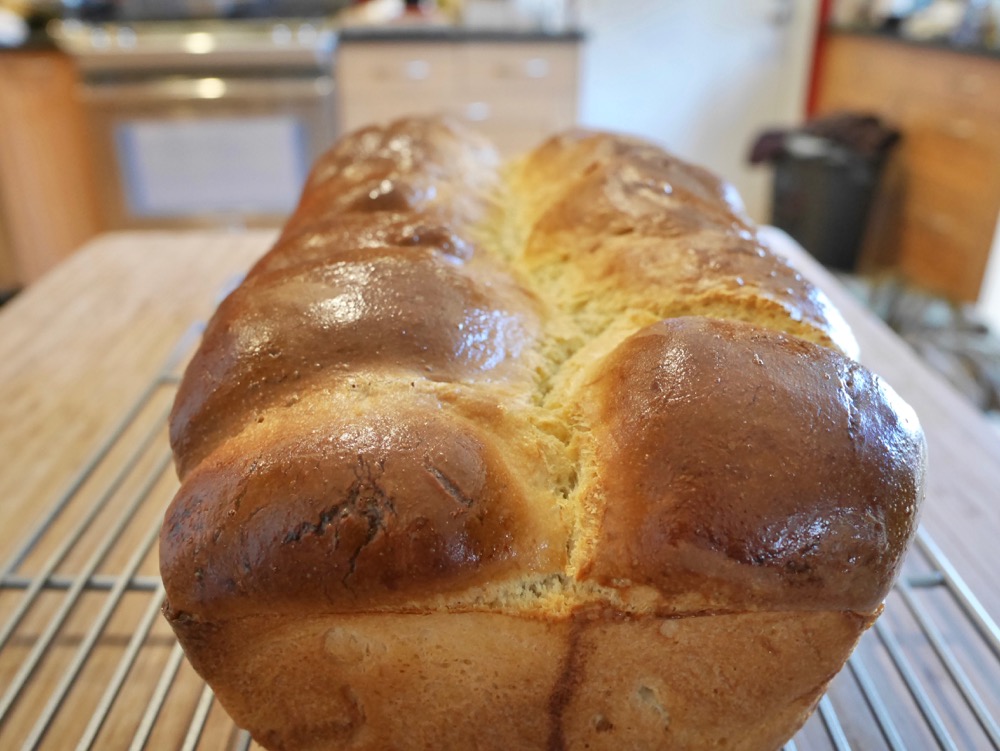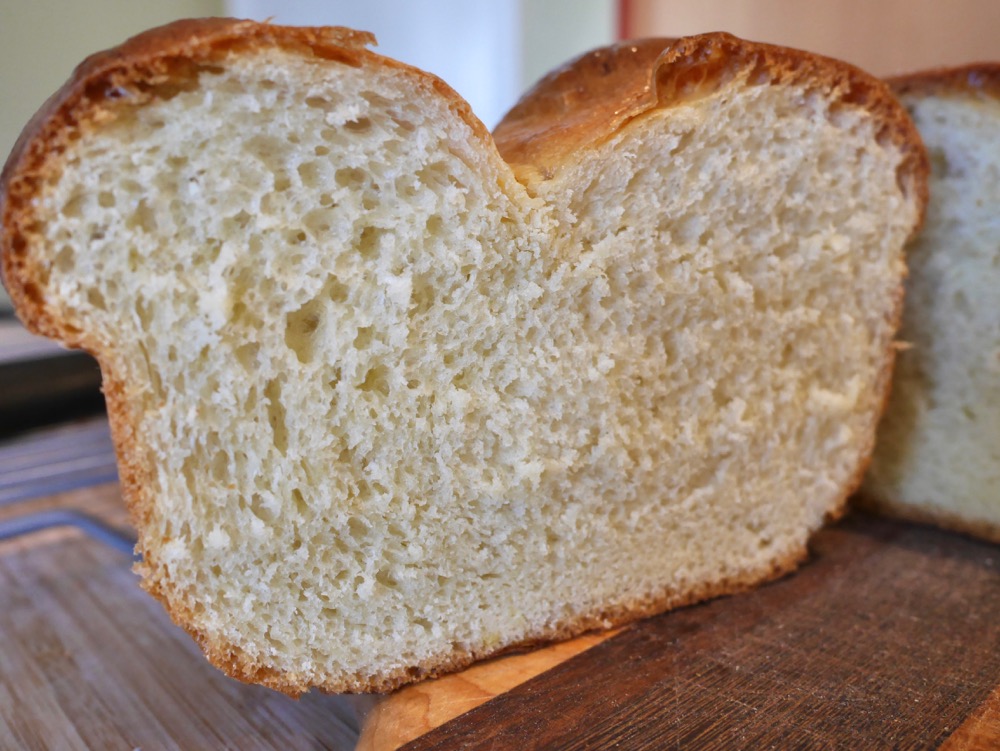I mentioned in an earlier post that my wife was not so enamored with "artisan" bread. For this loaf, I did a complete 180 and baked something that was far, far outside of my wheelhouse. Actually, my wife was specific about it, after I pressed her on why she wouldn't eat my bread for the fourth time that day.
"I want brioche" she said. "Make me brioche and I will eat it."
"How hard could it be?" I said, foolishly, and not for the first time.
So for my first attempt at brioche, and having no idea what brioche is really about, I turned to the interwebs for help. I came across (and discarded) a bunch of recipes that said things like DO NOT MAKE ANY CHANGES UPON PENALTY OF DEATH and other such foolish things. It's as if the brioche process were some sacred indoctrination rite, like fetching a bucket of steam or a sky hook.
Finally, I stumbled on a recipe that seemed accessible, had informative pictures, and generally didn't make such a fuss about how Julia Child would have wanted it done.
It went well, actually. I don't use the stand mixer very often (mine sounds like a two-stroke engine with a broken crank, actually -- but it still works) so it was a nice change of pace.
The dough behaved mostly like the recipe said it would, and after an overnight rest in the fridge, I had no problem forming the dough into balls and making the pseudo-braid in my very large hearth loaf pan, using all the dough for a single loaf instead of two smaller loaves.
It baked as it was supposed to as well, though I had to cook it longer to get the internal temp up to 190°, as per the instructions. It wasn't until it had cooled off and I took the first bite that I realized what I had done wrong.
No salt.
Darn it! I forgot the salt! I could tell right away, even though all the butter and eggs kicked in enough flavor to make it somewhat less of a tragedy than it would have been for one of my regular loaves. In fact, my wife still liked it, and my MiL loved it. She's been asking me to bake another brioche loaf ever since.


